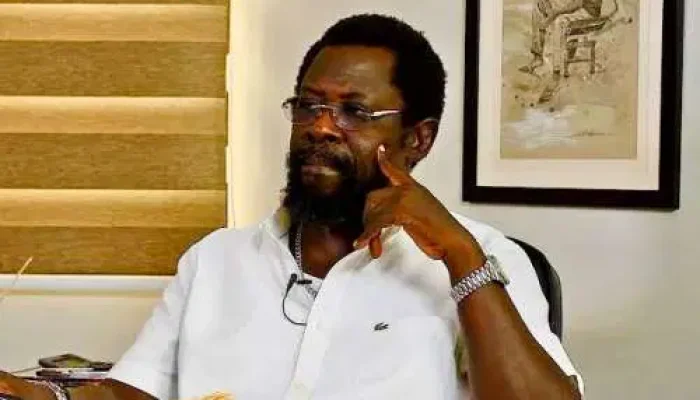The ongoing legal drama between elder statesman Aare Afe Babalola, SAN, and activist lawyer Dele Farotimi has ignited widespread debate in Nigeria’s legal and public spheres. The dispute, rooted in allegations of defamation, raises important questions about free speech, accountability, and the limits of public discourse.
Background: Accusations and Counterclaims
Afe Babalola, a revered legal luminary and founder of Afe Babalola University in Ado Ekiti, alleges that Farotimi made defamatory statements in his book Nigeria and its Criminal Justice System. Babalola said the book contained unfounded allegations that tarnished his hard-earned reputation. These claims gained further traction after Farotimi appeared on the Mic On Podcast, accusing Babalola of corrupting the judiciary.
Babalola petitioned the Nigerian Police, seeking an investigation into these claims. The police acted swiftly, arresting Farotimi in Lagos and arraigning him at an Ekiti State Magistrates Court. Chief Magistrate Abayomi Adeosun presided over the court, denied Farotimi bail, and adjourned the case until December 10, 2024.
Legal Developments: Fresh Charges
The case escalated when the police filed additional charges against Farotimi at a federal high court in Ado-Ekiti. These charges, rooted in Nigeria’s Cybercrimes Act, allege that Farotimi disseminated false information through his online interviews. Specifically, the prosecution cites a podcast where Farotimi reiterated his allegations against Babalola. The Cybercrimes Act criminalises the intentional transmission of false information that could incite disorder, adding a digital dimension to the already contentious case.
Afe Babalola’s Stance
Babalola, through his legal team led by Owoseni Ajayi, a former Attorney General of Ekiti State, has vehemently defended his decision to pursue legal action. At a press conference in Ado Ekiti, Ajayi emphasised the elder statesman’s right to protect his reputation, arguing that the law provides a framework for addressing defamation.
“Aare Afe Babalola has spent decades building his reputation through hard work and diligence,” Ajayi stated. “The law allows free speech but not one that is calculated to injure the good reputation of another.”
Babalola’s legal team has challenged Farotimi to provide evidence supporting his claims. If the activist can substantiate his allegations, Babalola’s lawyers argue, he will face no legal consequences. However, they maintain that the law must take its course without such evidence.
Farotimi’s Position
Farotimi, known for his outspoken criticism of Nigeria’s legal and political systems, has not publicly recanted his allegations. His legal team has sought bail and argued for his right to express dissenting views, positioning the case as a battle over freedom of speech. Farotimi’s supporters have also criticised the legal proceedings as an attempt to silence dissent, accusing the authorities of wielding defamation laws to stifle legitimate critique.
Public Reaction and Broader Implications
The case has sparked significant public interest, dividing opinions along ideological lines. Babalola’s supporters argue that his legal action is justified to protect his integrity against baseless accusations. On the other hand, Farotimi’s allies see the case as emblematic of a broader struggle for free speech in Nigeria.
The tension between free speech and accountability is at the heart of the debate. While freedom of expression is enshrined in Nigeria’s Constitution, defamation laws and statutes like the Cybercrimes Act impose limits, especially when speech is perceived as damaging or inflammatory. The outcome of this case could set a precedent for how such conflicts are resolved in the digital age.
Call for Fact-Based Discourse
Babalola’s legal team has urged Nigerians to prioritise evidence over speculation in addressing the controversy. “All facts are verifiable,” Ajayi noted. “I urge Nigerians to verify and find out what the truth is first before picking a side.”
This appeal underscores the importance of informed public discourse, especially in an era where misinformation and sensationalism often dominate.
Conclusion: Awaiting Justice
честные казино с быстрыми выплатами
бездепозитные бонусы казино
играть в лучшем казино на деньги
база казино с бездепозитным бонусом
онлайн казино России
casino oyunu
As the legal proceedings continue, the case between Afe Babalola and Dele Farotimi serves as a microcosm of the challenges facing Nigeria’s justice system. It highlights the delicate balance between safeguarding reputations and upholding free speech, particularly in a digital landscape where opinions are amplified and often polarised.
With fresh charges and a court date looming, the spotlight remains on Ado Ekiti, where the court’s decisions will likely reverberate far beyond the individuals involved. Regardless of the outcome, this case will undoubtedly shape the discourse on accountability and freedom in Nigeria’s evolving democracy.




